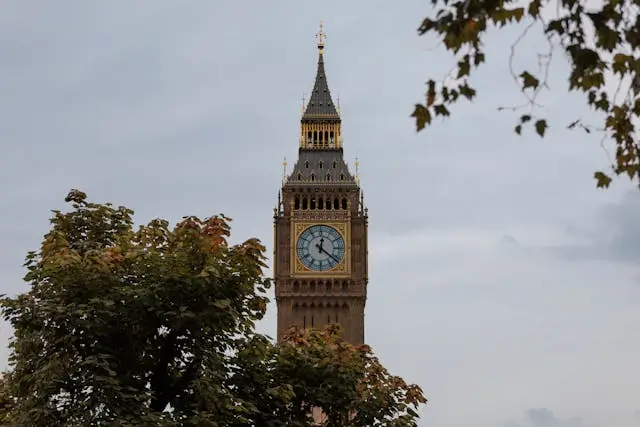Dua After Azan (Adhan) — Importance, Arabic Text, Translation & Reward
The Adhan (Azan) — the beautiful call to prayer — echoes across the Muslim world five times a day, inviting believers to success and reminding them of their connection to Allah ﷻ. But do you know that the moments after the Adhan are among the most blessed times to make dua?
Reciting the dua after Azan is a Sunnah of the Prophet ﷺ and brings immense rewards. It is a short but powerful supplication that every Muslim should learn, understand, and make a part of their daily routine.

What Is the Adhan (Azan)?
The word “Adhan” in Arabic (أَذَان) means announcement or proclamation. It is the public call that signals the time for each of the five daily prayers (Salah).
The Adhan is not just a call to gather; it is a reminder of faith, a statement of Tawheed, and a testimony of the message of Islam — that there is none worthy of worship except Allah, and Muhammad ﷺ is His final Messenger.
When the Adhan is called, angels bear witness, and every creature that hears it — human, jinn, or even the stones — will testify on the Day of Judgment.
Why the Time After Adhan Is So Special
The moments between the Adhan and Iqamah (the second call right before prayer starts) are among the most blessed times to make dua.
The Prophet ﷺ said:
“The supplication made between the Adhan and Iqamah is not rejected.”
(Narrated by Abu Dawood, Tirmidhi – Sahih)
This means every believer has a golden opportunity five times a day to have their prayers answered — simply by taking a few moments after the Adhan to make dua with sincerity.
The Authentic Dua After Azan (Arabic, Transliteration & English Translation)
Arabic:
اللَّهُمَّ رَبَّ هَذِهِ الدَّعْوَةِ التَّامَّةِ، وَالصَّلَاةِ القَائِمَةِ، آتِ مُحَمَّدًا الوَسِيلَةَ وَالفَضِيلَةَ، وَابْعَثْهُ مَقَامًا مَّحْمُودًا الَّذِي وَعَدْتَهُ
Transliteration:
Allahumma Rabba hādhihi-d-da‘watit-tāmmah, was-ṣalātil-qā’imah, āti Muhammadan al-wasīlata wal-fadīlah, wab‘ath-hu maqāman mahmūdan alladhi wa‘adtah.
English Translation:
“O Allah, Lord of this perfect call and established prayer, grant Muhammad the means and virtue, and raise him to the praised station that You have promised him.”
The Meaning and Significance of the Dua
This dua is not just a phrase — it’s a reflection of love, respect, and hope for the Prophet ﷺ and for one’s own success in the Hereafter.
Let’s look deeper into what this dua means:
- “Rabba hādhihi-d-da‘watit-tāmmah” – You acknowledge that this call to prayer is perfect and complete, reminding yourself of the beauty of Islam.
- “Was-ṣalātil-qā’imah” – You express your readiness for the prayer about to begin.
- “Āti Muhammadan al-wasīlata wal-fadīlah” – You ask Allah to grant our beloved Prophet ﷺ the highest rank in Jannah (Paradise).
- “Wab‘ath-hu maqāman mahmūdan alladhi wa‘adtah” – You ask Allah to raise him to the Praised Station (Maqām Maḥmūd) — a position of honor on the Day of Judgment.
By reciting this dua, you’re participating in an act that not only strengthens your connection to Allah but also expresses love for the Prophet ﷺ.
The Reward for Saying Dua After Adhan
The Prophet ﷺ promised a tremendous reward for those who recite this dua sincerely:
“Whoever says this supplication when he hears the call to prayer, my intercession will be permitted for him on the Day of Resurrection.”
(Sahih al-Bukhari 614)
This means — by simply reciting this dua, a believer earns the intercession (Shafa’ah) of the Prophet ﷺ — a great honor on the Day of Judgment.
Step-by-Step Guide: What to Do When You Hear the Adhan
- Listen attentively.
Stop what you’re doing and listen silently to the Adhan. - Repeat after the Mu’adhin (caller).
Say the same words after each phrase, except when the Mu’adhin says:
“Hayya ‘alas-Salah” (come to prayer) and “Hayya ‘alal-Falah” (come to success).
Respond by saying: “La hawla wa la quwwata illa billah.”
(“There is no power nor strength except with Allah.”) - Send blessings upon the Prophet ﷺ.
After the Adhan, recite Salawat (Darood): “Allahumma salli ‘ala Muhammadin wa ‘ala ali Muhammad.” - Recite the dua after Adhan.
Then, read the dua mentioned above with focus and sincerity. - Make personal dua.
Before Iqamah, ask Allah for whatever you need — forgiveness, guidance, and ease.
Common Mistakes to Avoid
- Talking during Adhan: It’s recommended to stay quiet and listen.
- Skipping Salawat: Many forget to send blessings upon the Prophet ﷺ.
- Neglecting the dua: The dua is short and full of reward — don’t miss it!
- Rushing to talk or move: Pause for a few seconds after the Adhan ends to recite it properly.
Virtues of Listening and Responding to the Adhan
The Adhan is a reminder that we are never too far from Allah’s mercy. Responding to it with humility and reciting the dua connects us spiritually.
The Prophet ﷺ said:
“If people knew the reward for calling the Adhan and standing in the first row (of prayer), they would draw lots for it.”
(Sahih al-Bukhari)
Listening and responding to the Adhan revives one’s Iman (faith) and earns immense rewards every single day.
Benefits of Dua After Azan
| Benefit | Description |
|---|---|
| Forgiveness of sins | Allah accepts sincere dua at this blessed time. |
| Prophet’s intercession | A guarantee from the Prophet ﷺ for those who recite it. |
| Spiritual connection | Strengthens your relationship with Allah. |
| Reminder of Salah | Keeps your focus on the importance of prayer. |
| Revives Sunnah | Practicing this dua keeps a daily Sunnah alive. |
Practical Tips to Build This Habit
- Set a reminder on your phone.
Apps like Muslim Pro can notify you for prayer times. - Teach your children.
Help them memorize it with meaning — it strengthens their love for Salah. - Recite aloud at home.
The Prophet ﷺ encouraged families to respond together. - Keep a dua card handy.
Stick a print of the dua near your prayer area.
Connection With the Quran
Just like the Quran encourages reflection (tadabbur) and remembrance of Allah, the Adhan and its dua are a daily reminder to turn hearts back to Allah ﷻ.
You can explore more about the Quran’s divine message and revelation here:
👉 The Quran as a Miracle
or learn more about Islam and online Quran learning at Quran Teacher Online.
Frequently Asked Questions (FAQs)
What is the dua after Azan?
It is a supplication said after the call to prayer, asking Allah to bless the Prophet ﷺ and raise him to the Praised Station.
Is the dua after Azan compulsory?
No, it’s Sunnah — a highly recommended act loved by Allah and His Messenger ﷺ.
Can women also say the dua after Azan?
Yes, both men and women can and should recite it when they hear the Adhan.
What’s the reward of reciting dua after Azan?
The Prophet ﷺ promised his intercession on the Day of Judgment to those who say it.
Should we recite it after every Azan?
Yes, after every obligatory prayer’s Adhan, except for the Jumu‘ah Khutbah when it’s already in progress.
Final Thoughts
The Dua after Adhan is a beautiful Sunnah that takes less than a minute but carries rewards beyond measure. It’s an act of love — love for Allah, love for Salah, and love for the Prophet Muhammad ﷺ.
Let’s make it a daily habit, teach it to our families, and strengthen our bond with Allah through these simple yet powerful words.







